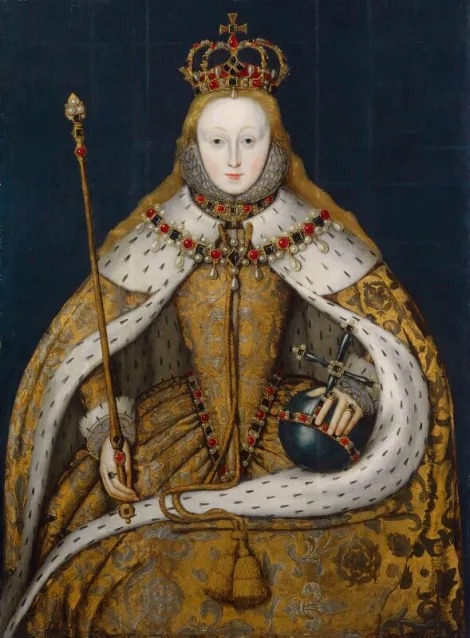#the henry vi experiment
Text
Summary: Henry VI's son is dead.
Relationship: Henry VI & Edward of Lancaster
Rating: mature
Content/Warnings: major character deaths, heavy angst, experimental style, literary and Biblical allusions, blood/gore, dream sequence, father dealing with his son's death, changing tenses and non-conventional dialogue tags
Notes: a whole lot of credit (or shall I say blame?) must go to @shredsandpatches for her help and influence in writing this, as well as to @ardenrosegarden for an idea that I used.
#sometimes i write things#look i'm just saying#this is emotionally destructive#and it is his death day#the henry vi experiment
14 notes
·
View notes
Text

Things I think about every so often and possibly the first ever direct comparison between these two pieces
#mefistofele#henry vi#opera#it's true and i should say it#anyway one of my most transformative theatrical experiences was a henry vi cycle
9 notes
·
View notes
Text
The Cusp of Ignition!
from Experience the Paths Vol. 1
Natalie Van Sistine, Sam Lee-Potter, Henry, Vinchi, HOYO-MiX
#hsr#honkai star rail#experience the paths vol 1#serval#jarilo vi#natalie van sistine#chi wen#character trailer#plays in serval's character trailer which her VA also sings#needed 7 second buffer at beginning#i also used up my uploads testing stuff so this is all i have for today </3#vocal track#Vinchi#hsr:vocal track#hsr:character trailer#Sam Lee-Potter#Henry
7 notes
·
View notes
Text

SCIENCE ID PACK

NAMES ⌇ acid. ada. alkali. amadeo. archaea. argon. atlas. atom. atomielle. atomiene. beryl. beryllium. billy. bon. boron. cadmium. caesium. cal. carson. catalyst. cecile. cell. celle. celline. charles. chem. chemesse. chemise. chemisette. chemist. chemistrine. chrome. claude. clumselle. cobalt. comet. copper. cosmic. curt. cypher. darwin. data. decora. dex. dexter. doc. doppler. edison. edward. egbert. elara. electra. element. ellie. enoxaparin. entropy. ester. ether. euclid. evo. evoliene. evoliette. evolune. experi. experielle. experiette. experimae. foggy. galileo. gamma. gibson. gizmo. gorgon. graham. graviette. gravitae. gravitine. halogen. hatchet. hazard. helix. henry. herbert. hypatia. ion. irvin. jekyll. julius. jupiter. kelvin. lab. lavoisier. lobotelle. logy. lumen. lymphoid. magnesium. magnus. mandi. mandible. marina. marrow. matter. medusa. mercury. millie. molly. monoxide. moon. neon. neuralgia. newton. nightingale.abacus. opaque. organelle. osmos. otto. ox. patchy. pathogenica. pearl. phosphorous. plasma. plasticulla. positron. posy. psych. psyche. psychielle. psychiette. quark. radia. radiatien. radiette. raymond. rocket. sagan. saturn. sci. science. sciencia. scieniette. scientist. selenium. silicona. solar. spectra. spore. staurozoa. tech. tesla. theorie. thomas. toxin. trojan. troubleshoot. valence. venus. victor. violet. volt. xen. zeke. zinc.

PRONOUNS ⌇ ?/?. abyss/abyss. acid/acid. actin/actinide. ae/atom. atom/atom. atomic/atomical. base/base. bea/beaker. beaker/beaker. beam/beam. bi/bio. bio/bio. bio/biochem. bio/biology. biology/biology. bone/bone. bub/bubble. bubs/bubble. catalyst/catalyst. ce/cell. cell/cell. che/chemistry. chem/chem. chem/chemical. chem/chemistry. chemical/chemical. chromosome/chromosome. da/data. danger/danger. data/data. decay/decay. dna/dna. e/evo. ele/element. elec/electric. elec/electron. electro/electro. electron/electron. entropy/entropy. enzyme. evo/evolve. evolution/evolution. evolve/evolve. ex/expert. exa/examine. exp/experiment. expe/experiment. experi/experi. explode/explode. fe/iron. fizz/fizz. flask/flask. geni/genius. glass/glass. goggle/goggle. gra/gravity. grav/gravity. halo/halogens. haz/hazard. hyp/sin. hypo/hypothesis. ion/ion. ion/ionization. iso/isotopic. isotope/isotope. kinetic/kinetic. know/knowledge. la/lab. lab/lab. mad/mad. magnet/magnet. mal/mal. mars/mar. mask/mask. merc/mercurys. met/metal. metal/metaloide. method/method. mi/microbe. min/mind. mol/molecule. mutant/mutant. mutate/mutate. needle/needle. neu/neucleus. neu/neutron. neuron/neuron. neutron/neutron. nu/nuclear. nucle/nucleus. nuclear/nuclear. nucleus/nuclei. orbit/orbit. organism/organism. pa/paradox. para/paradox. patch/patch. photon/photon. planet/planet. plant/plant. plat/platinum. poi/poison. pro/proton. pro/protron. psy/psycho. rad/radiation. radio/radiograph. rae/radiation. ribo/ribosome. rna/dna. sci/sci. sci/science. scien/scien. script/script. sick/sickness. spark/spark. spill/spill. star/star. study/study. subject/subject. tech/technician. test/test. theo/theory. theory/theory. tissue/tissue. tox/toxic. tri/trial. value/value. vi/viru. vial/vial. volt/volt. wave/wave. x-ray/x-ray. xyr/xyr. zip/zap. ⚗️/⚗️. 🔬/🔬. 🥼/🥼. 🧪/🧪. 🧫/🧫. 🧬/🧬. 🧮/🧮.

#⭐️lists#id pack#npt#name suggestions#name ideas#name list#pronoun suggestions#pronoun ideas#pronoun list#neopronouns#nounself#emojiself#sciencekin#scientistkin#mad scientist
128 notes
·
View notes
Text
The Midnight Kiss
Summary: Henry attends Alex's New Years Eve party and experiences his last first kiss ever. Henry's POV of Red, White & Royal Blue, Chapter Four, pages 99-108
Rating: T
Word Count: 2,905
AO3 Link
Alex was an absolute menace. He had no right looking as good as he did in a burgundy velvet jacket, his hair a tousled mess, skin shining and red from dancing. It was the first time they’d been face to face since their weekend at the palace, the first time actually together since becoming friends, and Henry was starting to get… ideas.
He wasn’t totally positive, but it sounded like Alex was flirting with him over the phone, and their text messages too had become increasingly flirtatious.
Henry was reluctant to accept the invitation to the White House’s New Years party from June when he’d first received it, but Pez insisted they go. He’d finally broken down and told him about the turkey situation in early December after resolutely deciding nobody could ever know about it, about how openly he flirted and how easy the banter came, but Pez knew everything… and it wasn’t hard for him to tell that Henry was smitten.
The party was in full swing, and Henry was not nearly as drunk as Alex was, but he was slowly catching up. Henry felt a bit like a fish out of water, Pez having left him for June and Nora’s company, Alex being the life of the party in the middle of the dance floor, it was him and his bottle of champagne against the world. Well it was, until Alex pulled him in with his inescapable force of gravity.
“You don’t dance?”
Alex was slurring slightly, swaying on the spot, definitely drunker than Henry would dare to get at a diplomatic event.
Henry was a fine dancer, just… not in this style. “No, I do, it’s just, the family-mandated ballroom dancing lessons didn’t exactly covers this?” He’d been forced to dance with many eligible bachelorettes with varying titles, and he didn’t mind it; truly he was a wonderful dancer, and the ladies he kept company with were remarkable young women. But there was no passion, no feelings, just a fond sense of camaraderie.
“C’mon, it’s, like, in the hips. You have to loosen up.” Henry had to fight to keep his grip on the neck of the bottle as Alex’s hands were suddenly on his hips. He sucked in a breath, heat crawling up his neck and his face going red. Luckily he could play it off as being the heat of the room getting to him, or the alcohol going to his head if anyone asked, but anyone who really knew him would see the red flashing lights of GAY PANIC take over. “That’s the opposite of what I said.”
“Alex, I don’t—” His voice cracks giving him away entirely. It had been far too long since he’d been touched by a man and Alex’s controlling nature in that moment was doing things to him.
“Here, watch me.” Alex’s hips moved sensually, doing little figure 8’s, and Henry tried not to make it obvious that he was watching for more than just the technique.
He took a gulp of champagne straight from the bottle and nodded a bit. “I am.”
His eyes dragged up Alex’s lithe body, loose and free, until they reached his face, just in time for the realization of a song change to dawn on Alex.
“Shut up, shut your dumb face this is my shit!”
Henry was clearly missing something. The song sounded vaguely familiar, but this wasn’t the type of music his social circle was known for playing.
“Did you seriously never go to an awkward middle school dance and watch a bunch of teenagers dry hump to this song?”
Henry shot him a look, holding onto his champagne for dear life. “You absolutely must know I did not.” As ridiculous as the moment was, it was refreshing for Henry to feel like, for even a second, he was seen as just a normal kid doing normal kid things like bumping and grinding to a popular song with his friends at a dance.
“Nora! Nora! Henry has never watched a bunch of teenagers dry hump to this song!”
“What?”
His face goes ashen. “Please tell me nobody is going to dry hump me…” A brief flash of a vision of Alex behind him, hands on hips, lips on his neck, or Alex in front of him, thigh pressed between his own, a large hand fisted in his hair, teeth at his earlobe… He shook the sudden horny thoughts from his head.
“Oh my god, Henry. You have to dance. You have to dance. You need to understand this formative American coming-of-age experience.”
And that’s how Henry found himself in the middle of the dance floor while Get Low blared from the speakers surrounding the venue.
He knows he must look a little shell shocked. Pez is totally into it, hands on the floor, ass in the air twerking against June, Nora behind Alex looking hilarious as she just reaches his shoulder. It’s a lot, but it’s fun. He giggles as Alex eggs him on, tries to replicate the figure 8 hip swivel with little success. Henry is sure he looks totally silly, but he doesn’t care. June whispers something in Alex’s ear, the siblings glance at Henry and each give him a once-over, and he goes somehow, even redder. And from there, then night goes on.
He’s sure his crush on Alex is entirely obvious by the way Henry follows him around the dance floor like David followed him around Kensington Palace as a little puppy. Henry stands around on the dance floor, almost not believing his luck at how close he’d become with the man he’d harboured a silly little crush on, until Alex catches him staring, in which case he starts dancing again.
Nora follows the two of them around as well, Henry hadn’t expected her to latch onto him the way she did, but she was actually quite fun, even if she could totally tell where Henry’s heart lay. She was Alex’s best friend, and Henry knew this, but the way she was around Alex… he was annoyed at how she’d tried to befriend Henry then dangle Alex in front of him.
Midnight was quickly approaching, the booze had been freely flowing, and Henry’s tolerance for Nora waning. He smiled politely as she pulled them both in close for the countdown, but the smile didn’t reach his eyes as hers drifted to him. Finally, the clock struck midnight, shouts of ‘Happy New Year!’ Rang out through the room, and as Henry looked over to Alex, he was met with the sight of Nora planting her lips on his.
Disappointment swelled through Henry, his heart dropping down to his stomach as he watched the smaller woman drag her fingers through the dark curls he longed to touch. He could feel tears prickling his eyes, and he pleaded with himself not to cry and entirely give himself away, but it was hard to resist it. Alex broke off the kiss with a satisfied smirk, and met Henry’s eyes. He hoped he couldn’t see the hurt in them, hoped his heart wasn’t sitting right on the outside of his body, but he knew that hope was futile. Henry took a deep swig of champagne straight from the bottle, settled it down on a nearby table, and dashed out of the crowd.
I wish you were here dad, Henry thought as he stood in the middle of the snow covered garden, completely losing track of what time it was and how long ago he’d left the party. I really need you right now, need you to tell me it’s okay, that I’ll get over him, that my person is out there.
The silence was welcoming, just him, and the stars, and the faint sound of music and fireworks in the distance, and… someone stubbing their toe?
He hastily wipes at his eyes, and turns to see Alex stumbling over, confusion written all over his face.
“What’re you doing out here?”
Henry focuses on Alex’s face. “Looking for Orion.”
He hears Alex snort, not quite registering how close he’s moved towards him. “You must be really bored with the commoners to come out here and stare at the clouds.”
“I’m not bored,” he says, trying his hardest not to sound as pathetic as he feels in the moment. “What are you doing out here? Doesn’t America’s golden boy have some swooning crowds to beguile?” Ouch. He winces at his own words, knowing he sounds a bit like an ass.
“Says Prince fucking Charming.”
“Hardly.”
Alex steps up beside Henry. A jolt runs through him as their hands brush by their sides, and Henry can feel his self control waning.
“You didn’t really answer my question, though.”
A groan rips through Henry, and he rubs a hand across his face. This was his worst nightmare, he could handle the heartbreak, but the questions that followed were hell to answer. “You can’t ever leave well enough alone, can you? Sometimes it gets a bit… much.” Henry can feel Alex’s eyes on him, but he continues looking forward. Alex moves beside him, leaning against the tree, brushing their shoulders together, and it’s almost too much for Henry. Oh no, he thinks, feeling his mouth start to move, floundering around a question he doesn’t think he wants the answer to. “D’you ever wonder what it’s like to be some anonymous person out in the world?”
“What do you mean?”
“Just, you know, if your mum weren’t the president and you were just a normal bloke living a normal life, what things might be like? What you’d be doing instead?”
“Ah.” Henry turns his head to assess Alex. “Well, I mean, obviously I’d be a model. I’ve been on the cover of Teen Vogue twice. These genetics transcend all circumstance.” Henry rolls his eyes dramatically and turns his head back to facing forward. “What about you?”
What about me? He’s thought about this, a lot. The world was changing, it was a more accepting place for people like him, but not for people of his position. He had so many ideas, thoughts, dreams, wishes. Henry shook his head, answering as truthfully as he was able to. “I’d be a writer.”
“Can’t you do that?”
His eyebrows raised. Yes, technically he could write a memoir, or something of the sort, but that’s not where his passions lie. He could never publish what he’s written, the poetry too flowery, too obvious, too queer, the world would know right away, and his grandmother had already made it known what she thought of people like him. “Not exactly seen as a worthwhile pursuit for a man in line for the throne, scribbling verses about quarter-life angst.” He shook his head again. “Besides, the traditional family career track is military, so that’s about it, isn’t it?”
There was more he wanted to say, more bubbling to come out about his brother, but he held his tongue. The air between them was thick, the silence deafening, almost as if Alex knew he had more to say, and was waiting for him to say it. And before he could stop himself, the words were leaving his lips. “I’d date more, probably, as well.”
Henry winced as Alex’s sharp laugh broke the tension. “Right, because it’s so hard to get a date when you’re a prince.”
His head whipped around, facing Alex once more. “You’d be surprised.”
“How? You’re not exactly lacking for options.” Oh if only he knew.
I’m gay, Alex, the Prince of England’s Hearts can’t be gay. Why aren’t you seeing me, why aren’t you hearing me, please don’t make me say it out loud, please don’t make me show you you’re the only option I want.
“The options I’d like…” Henry’s eyes bored into Alex’s, hoping he’d understand, but his expression was just blank. “They don’t seem to be options at all.”
“What?”
You, holy shit Alex, it’s you. You’re straight, you have Nora, you have women all over you, and you’d never go for the likes of me because I’m a man. A gay man, Alex, a gay man who has a big gay crush on you, and…
“I’m saying that I have… people… who interest me.” He turns his body fully towards Alex, eyebrows raising pointedly. “But I shouldn’t pursue them. At least not in my position.”
Henry had only really, formally come out to two people in his life: Percy and Beatrice. Pez was his best friend since Eton, and well, he’s Pez. There’s no chance he didn’t know about Henry’s sexuality before he sat him down tearfully one day and told him about his awful first kiss, but Henry spelled it out for him anyways, and Pez being the best friend he was, pulled Henry into a hug. His grandmother was technically the second, although he never actually told her about his preferences, so he doesn’t even count it. Beatrice was another tearful confession in the midst of collecting her from a drug-addled night out. Alex could be the third; there’s no way Alex could be homophobic, tonight’s party had proven that with his guests being all different types of people, and the way he fluidly flirted with anyone in his path, but that doesn’t mean he’d want to stay friends with Henry if he knew the truth about him. Especially if he knew how Henry felt about him.
Henry stared him down, waiting for a response, but all he got was, “I don’t know what the hell you’re talking about.”
“You don’t?”
“No.”
He blinked. “You really don’t?”
“I really, really don’t.”
Well, this was going disastrously. His resolve was breaking entirely, and there was just enough alcohol in his system to make him want to do something stupid. But… would it really be that stupid after all? Henry thought back to all the conversations they’d had… the banter, the flirting, what if Alex truly didn’t care that Henry was gay, what if he wasn’t getting it because, well because he knew already. And if he already knew and still flirted, then…
Then maybe…
He took a deep breath, glancing towards the sky, looking for Orion again, and sent up a silent plea.
“Christ, you are as thick as it gets,” Henry breathes out hastily before rushing forward, taking Alex’s jaw between his hands, and kissing him.
His lips were warm, and Henry could taste faint remnants of the champagne they’d been drinking earlier on them. Just as he thought he would be, Alex was totally frozen in place as one of Henry’s hands slides from Alex’s jaw to his dark curls, the curls that were indeed as soft as they’d looked. The alcohol coursing in his veins kept him from overthinking about how awkward first kisses could be, especially when only one party is into it, but then…
Alex’s lips moved, but didn’t break the kiss. They slid against Henry’s as if testing the waters, opening him up to more, and in a shocking turn of events, Henry followed Alex’s lead.
His hands, though static before, moved around to Henry’s waist, drawing him in closer as their mouths moved in tandem. Henry couldn’t help the slip of tongue that his hazy mind convinced him was instinctual, but it didn’t matter because Alex followed suit, and soon enough, they were intertwined. It was natural, it was breathtaking, it was… big.
It was just a kiss, Henry had had plenty of those, but something about this kiss felt… life-altering.
Henry barely registers it, but Alex makes a noise in the back of his throat, and suddenly, it was as if someone had doused him in ice water. Reality kicked in, he’d just kissed Alex, he’d just kissed Alex, and it could never happen again. He pulled away, his eyes wide and stinging with unshed tears, and gazed into Alex’s. They were glazed over, he was drunk and probably wouldn’t even remember it, and… and for some reason it hurt Henry.
“Fuck.” He muttered under his breath, putting more space between them, before dropping his gaze to the ground. “I’m sorry,” he whispered, walking away.
Once Alex was out of sight, he pulled out his phone and texted Pez that he was leaving the party entirely, and they’d catch up in the morning. Lord only knows he’d found someone that would be better company for the night, and was hopefully having a better night than Henry was.
He didn’t sleep; he couldn’t cry, couldn’t scream, couldn’t be anything but mad at himself for doing something so stupid during a moment of weakness… Henry had no idea how he was going to ever face Alex again. He almost wished they were drunk enough to forget it ever happened, but he couldn’t even play it off as being drunk, their conversation was too coherent. Alex was a flirt, he saw it that night with everyone at the party, so the kiss couldn’t have meant the same thing to him as it did to Henry. The reality of it was harsh, but the more Henry thought about it, the more it made sense. Alex was straight, Alex was drunk, Alex had a momentary lapse of judgement, and Henry could never let him know how he really felt about him. And now that he’d had him, even if only for a fleeting moment, he knew the only way to get over him was to cut him out.
#firstprince#rwrb#rwrb fic#henry fox mountchristen windsor#alex claremont diaz#henry x alex#firstprince fic#my writing#red white and royal blue
20 notes
·
View notes
Text
My Stories
NEWEST Harry’s Stag Part One and Part Two - Harry is getting married soon and his best friends in the world have decided to take him on a bachelor party to remember. Little does he know that they have a secret plan which will lead to Henry getting much bigger. (Inspired by an old story called ‘Binge’ expanded)
NEWISH The Weight of the Stars - My first attempt at Sci Fi! Cassian longs to travel to a different planet to escape his miserable existance on earth. The only hope is the new interstellar travel technology, but theres a catch! To travel, he needs to gain weight, and fast.
BRAND NEW The Bear and the Mountain - High achiever Jamie goes off to find himself in the mountains on a hike, but after a nasty accident leaves him stranded he is rescued by a tall muscular woodsman who proceeds to look after him very well indeed
Awakenings
BRAND NEW A series of short stories about someone’s gainer or feeder awakening.
I - The Sculptor
II - The Taste of Freedom
III - The Film Festival
IV - The New Coach
V - The Type
VI - The Invitation
VII - The After Game Party
The Influencer
The Influencer: Milo (Part One) - With nowhere to go in life, Milo attempts to make it as a social media influencer. With illustrations by @badoobers
The Influencer: Will (Part Two) In the second instalment, Milo establishes himself online and bumps into an old friend at a school reunion. A friend who has changed a fair bit. With illustrations by @badoobers
Part three and four to come!
Stand Alone Stories
Please Feed the Bears A collaboration with @fillthattank with @badoobers artwork. Newly ex teacher Dan goes travelling in America and after a change in his circumstances he gets a job in a theme park that’s not quite what he thought it was.
Continue Dans story here where you can interact with an ai chatbot programmed to be Dan at the end of this story.
In Good Hands? Yann the scientist visits a suposedly haunted house to record supernatural activity and what he finds there is not what he expected.
Let Me Tell You About Jackson - a new story in collaboration with @swolescruff where posh boy Jackson learns a little something about life
The Birthday Meal - collaboration with @badoobers - A guy thinks everyone has forgotten his birthday and takes himself out for a meal. On arriving home, he realises his mistake.
Gainer & Feeder CHATBOTS
My Profile: @engorgeyou
CHATBOTS CHATBOTS2 CHATBOTS3 CHATBOTS4 CHATBOTS5 CHATBOTS6 CHATBOTS7 CHATBOTS8 CHATBOTS9 CHATBOTS10 - links to my ai chat bots - just an experiment but these are new characters to you to feed or enjoy!
The Obi Saga
Obi’s Place - collaboration with @badoobers Trucker Ben finds a place to stop for breakfast and meets a very interesting waiter. (maybe a sequel in the works if you guys like it!)
Aster’s Maze -Sequel to Obi’s Place in collaboration with @badoobers. Ben goes searching for Obi and discovers a little more than he bargained for in Greece
Santa's Otto a Sequel to Obi's Place and a Prequel to Aster's Maze (both below) On his search for answers Ben stumbles across what might be actually Santa! Looking at Santas instant gut, Ben has some questions.
The Letters
Dear Nate - sequel to Dear Alex. Nate sends his own confession
Dear Alex - short story about an unusual apology
Taking the Plunge
Part One Part Two Part Three
A new story about a guy exploring gaining for the first time. Inspired by a conversation with @beefedup
The Restaurant
My first ever gainer fiction, written 15 years ago!
Part One Part Two Part Three
Happy to take requests and if I like it, I’ll write it!
#gay gainer#stuffing#belly expansion#gainer fiction#male gaining#male belly inflation#gainer stories#inflated belly#stuffing art#ex jock#gainer artwork#gainer story#bloatedstud#bloatedaf#bloated gut
661 notes
·
View notes
Text
medieval women week day 2: Favorite non-Queen or Queen-adjacent royal woman: Jacquetta of Luxembourg Duchess of Bedford and Mother to Queen Elizabeth Woodville




Jacquetta of Luxembourg was the eldest child of the French Count of St Pol; her family descended from Charlemagne and were cousins to the Holy Roman Emperor. She grew up with war between France and England raging around her.
John, Duke of Bedford was the youngest son of King Henry IV. Having lost his wife to plague in 1432, he arranged to marry the seventeen-year-old Jacquetta, who was his social equal by her birth. Although married for two years they were childless when John died in September 1435. The King instructed Jacquetta to come to England and ordered Sir Richard Woodville, to arrange it.
However, Jacquetta and Richard fell in love, but Richard was a poor knight, far below Jacquetta in social status. Nonetheless, they married secretly thus thwarting any plans King Henry may have had to marry her off to a wealthy English lord. Theirs was a morganatic marriage, where one of the partners, most often the wife, was socially inferior. Henry was enraged and fined the couple £1000. He did however allow their heirs to inherit, which was unusual for morganatic marriages in England.
Being the widow of Henry V’s brother and aunt to the King, royal protocol gave Jacquetta the highest rank at court of any female except Henry’s wife, Margaret of Anjou, to whom Jacquetta was related by marriage. She even ‘outranked’ the King’s mother and was referred to as the ‘Duchess of Bedford,’ retaining the title from her first marriage. Richard and Jacquetta lived in their manor house at Grafton Regis near Northampton producing fourteen children, the eldest, Elizabeth being born in 1437.
In 1448 Richard was created Lord Rivers: his advancement ensured his family supported Henry VI in the dynastic feuding of the Wars of the Roses. The situation changed with the Yorkist victory at the Battle of Towton in 1461 and the seizure of the throne by Edward IV. By the spring of 1464, Jacquetta’s daughter Elizabeth was a widow, her Lancastrian husband having been killed in 1461. Within a few months, Elizabeth was married to the young King Edward IV.
Jacquetta died in 1472 aged 56 and was buried at Grafton, though no record of her tomb survives. Recently, one legacy has come to light. Research by gene specialists indicates that Jacquetta was a carrier of the rare Kell-Antigen-Mcleod syndrome causing impaired fertility and psychotic behavioural changes in the male descendants of the family.
Written by Michael Long. I have over 30 years experience teaching History in schools and examiner History to A level. My specialist area is England in the 15th and 16th centuries. I am now a freelance writer and historian.
#medievalwomenweek#jacquetta of luxembourg#day 2#wars of the roses#The White Queen#The painting at the bottom right isn't Jacquetta but it's how I love to picture her and Richard Woodville together. My favorite couple from#this era
13 notes
·
View notes
Text
Margaret of Anjou’s visit to Coventry [in 1456], which was part of her dower and that of her son, Edward of Lancaster, was much more elaborate. It essentially reasserted Lancastrian power. The presence of Henry and the infant Edward was recognised in the pageantry. The ceremonial route between the Bablake gate and the commercial centre was short, skirting the area controlled by the cathedral priory, but it made up for its brevity with no fewer than fourteen pageants. Since Coventry had an established cycle of mystery plays, there were presumably enough local resources and experience to mount an impressive display; but one John Wetherby was summoned from Leicester to compose verses and stage the scenes. As at Margaret’s coronation the iconography was elaborate, though it built upon earlier developments.
Starting at Bablake gate, next to the Trinity Guild church of St. Michael, Bablake, the party was welcomed with a Tree of Jesse, set up on the gate itself, with the prophets Isaiah and Jeremiah explaining the symbolism. Outside St. Michael’s church the party was greeted by Edward the Confessor and St. John the Evangelist; and proceeding to Smithford Street, they found on the conduit the four Cardinal Virtues—Righteousness (Justice?), Prudence, Temperance, and Fortitude. In Cross Cheaping wine flowed freely, as in London, and angels stood on the cross, censing Margaret as she passed. Beyond the cross was pitched a series of pageants, each displaying one of the Nine Worthies, who offered to serve Margaret. Finally, the queen was shown a pageant of her patron saint, Margaret, slaying the dragon [which 'turned out to be strictly an intercessor on the queen's behalf', as Helen Maurer points out].
The meanings here are complex and have been variously interpreted. An initial reading of the programme found a message of messianic kingship: the Jesse tree equating royal genealogy with that of Christ had been used at the welcome for Henry VI on his return from Paris in 1432. A more recent, feminist view is that the symbolism is essentially Marian, and to be associated with Margaret both as queen and mother of the heir rather than Henry himself. The theme is shared sovereignty, with Margaret equal to her husband and son. Ideal kingship was symbolised by the presence of Edward the Confessor, but Margaret was the person to whom the speeches were specifically addressed and she, not Henry, was seen as the saviour of the house of Lancaster. This reading tips the balance too far the other way: the tableau of Edward the Confessor and St. John was a direct reference to the legend of the Ring and the Pilgrim, one of Henry III’s favourite stories, which was illustrated in Westminster Abbey, several of his houses, and in manuscript. It symbolised royal largesse, and its message at Coventry would certainly have encompassed the reigning king. Again, the presence of allegorical figures, first used for Henry, seems to acknowledge his presence. Yet, while the message of the Coventry pageants was directed at contemporary events it emphasised Margaret’s motherhood and duties as queen; and it was expressed as a traditional spiritual journey from the Old Testament, via the incarnation represented by the cross, to the final triumph over evil, with the help of the Virgin, allegory, and the Worthies. The only true thematic innovation was the commentary by the prophets.
[...] The messages of the pageants firmly reminded the royal women of their place as mothers and mediators, honoured but subordinate. Yet, if passive, these young women were not without significance. It is clear from the pageantry of 1392 and 1426 in London and 1456 in Coventry that when a crisis needed to be resolved, the queen (or regent’s wife) was accorded extra recognition. Her duty as mediator—or the good aspect of a misdirected man—suddenly became more than a pious wish. At Coventry, Margaret of Anjou was even presented as the rock upon which the monarchy rested. [However,] a crisis had to be sensed in order to provoke such emphasis [...]."
-Nicola Coldstream, "Roles of Women in Late Medieval Civic Pageantry," "Reassessing the Roles of Women as 'Makers' of Medieval Art and Culture"
#historicwomendaily#margaret of anjou#my post#henry vi#yeah I don't necessarily agree with Laynesmith's interpretation (that it was essentially Marian with an emphasis on shared sovereignty)#which she herself says is 'admittedly very speculative'#as this book points out that interpretation tips the balance too far on the other side and has a somewhat selective reading#It's also important to remember that this interpretation was not really reflected across wider Lancastrian propaganda at the time#which isn't really talked about - let alone emphasized - as much by historians but remained focused on the King#For example: look at the pro-Lancastrian poem 'The Ship of State' which hails Henry VI as a 'noble shyp made of good tree'#and emphasizes how he was widely supported and defended by many great Lancastrian lords and the crown prince#but not Margaret who was entirely absent#also look at the book 'Knyghthode and Bataile' (presented to Henry) and Fortescue's various pro-Lancastrian texts in the 1460s#even the recording of that Yorkist trial which was iirc reported in the 1459 attainder#all of these were entirely conventional and highlighted the presence and importance of the King. Margaret was not emphasized.#so either the Lancastrians were impossibly inconsistent about what message they actually wanted to convey about the role of their own queen#or the Coventry pageants were not actually meant to emphasize Margaret in the lieu of Laynesmith's interpretation#and would not have been viewed in such a manner by contemporaries#I think we should also keep in mind that we don't really know what Henry VI's condition was like at the time of MoA's entry to Coventry#we know he had been injured in St. Albans and had only just recovered from his second illness#this is especially important to consider since we know he had also arrived at Coventry before Margaret but much more discreetly#and was not welcomed by any pageants that we know of. This is VERY unusual and can be best explained if we consider the fact that he#may have simply not been in the right state (be it physical or state of mind) for it at the time#in which case the pageants for Margaret should be viewed as more of a improvisation/cover-up/temporary measure to bolster prestige#or Henry may have deliberately taken a more discreet role to emphasize the position of his heir - especially important after the long wait#imo I think Kipling's interpretation (ie: that they addressed Margaret but really referenced the prince & heir) makes a lot more sense:#'Coventry [...] regarded Margaret's entry as a kind of triumph-by-proxy: the Queen entered the city but Coventry received its Prince'#though I think he tends to view Margaret as more of a cipher (and has a very questionable view of Henry VI) which I also don't agree with.#The pageants very much DID focus on and reference her but they most prominently emphasized her 'motherhood and duties as queen'#ie: I think Kipling and Laynesmith tip too far on opposite sides and I think this interpretation takes the most realistic middle ground
13 notes
·
View notes
Text
Many shocking, new ideas shaped the American Experiment and related 18th century democratic ventures; as an historian of the period, I often notice that one of the most fundamental of them, and most shocking to a world which had so long assumed the opposite, often goes unmentioned — indeed sometimes denied — in today’s discussions of democracy: the belief that all people are educable. I think it’s urgent that we bring that principle back into the spotlight if we want to defend democracy from one of its common failure modes: pseudo-populist oligarchy.
...
Today’s America has seen decades of the intentional conservative-led starving and squeezing of public education, efforts to increase the disparity in education quality between public education and private or charter school education, conservative-led homeschool movements which aim to expose people to a narrow range of ideology, and also the devastation of newspapers, journalism, and a vast misinformation campaign. All this adds up to preventing many who are educable from becoming educated. Thomas Paine, and those I’m using him to represent, would recognize this as a sabotage of their system, one they would say might indeed enable Cade-style populism, which (as in Henry VI) is easy for ambitious elites to then harness to their own ends. Thus, Paine would say: of course the democracy isn’t working well if such an essential precondition is being sabotaged.
When I see conservative thinking start to show up in acquaintances (or Silicon Valley leaders) who consider themselves progressive but also consider themselves smart, it often begins with them feeling that most people are stupid and the world would be better off if the smart were in charge. One can often get such people to pause and reflect by bringing up the question of whether they think all people are fundamentally educable, and whether the solution isn’t to put the reins of power into genius hands but to put the Encyclopedia in everyone else’s. Information is key. Those peasants who shared commons maintained them sustainably for centuries because (as we now recognize) they were educated in the ways that mattered, they learned from families and communities to understand what they were doing, using local knowledge of commons, grazing etc. as they made choices. If one’s democratic state is the commons, people will likewise maintain it well, but not if they’re intentionally deprived of access to basic knowledge of how it works and what can harm or heal it, and drowned instead in deliberate falsehoods.
--Ada Palmer, All People Are Created Educable, a Vital Oft-Forgotten Tenet of Modern Democracy
190 notes
·
View notes
Text
I'm not convinced that Sisko is right at the end of s6 e11 waltz, he says he saw pure evil in Dukat but I'm not so sure, in episode 11 and the end of episode 6 Dukat is showing symptoms of catatonic schizophrenia (although this is based off my knowledge of history and not medicine)
The first example of this is immediately following Ziyal's death and the Dominion/Cardassian retreat from Terrak Nor (undoubtedly the cause of his condition), he becomes altogether unresponsive to outside stimuli
The second is the most prominent, namely the schizophrenia he experiences throughout waltz, Weyoun representing his failure, Demar (best girl) representing his desire to re take his position at the head of the cardassian union (ironic considering Demar would probably kill him upon his return) and Nerys representing his self hatred and guilt for his actions on bajor
The third is how persuasasable he is, just as Henry VI was convinced by Suffolk and Somerset to go back to war with France, Sisko puts the words right into Dukat's mouth during his grand villain monologue talking about how he will make the bajorans pay
Sisko fully encouraging Dukat to villain monologue at him combined with telling him to act like Nerys, his conscience, isn't there are likley what are responsible for spiral into evil past e11
I'm not saying Dukat isn't pure evil, Sisko saw that he most certainly was, but Sisko is wrong to talk about seeing pure evil when he was the one to encourage and cajole it in Dukat in the first place
#star trek#star trek ds9#benjamin sisko#captain sisko#gul dukat#ziyal#terak nor#demar#weyoun#nebula#nebula class#henry VI#cardassians#dominion#federation#united federation of planets#ds9 sisko#ben sisko#sisko
41 notes
·
View notes
Text
VIDEO ESSAY ROUNDUP #6 [PART 1]
[originally posted august 1st 2024]
at last, it's time for another roundup! things were fairly dry for a minute there. i tend to go through peaks and valleys vis-a-vis video essay consumption, where i'll watch a bunch of them for a few months and then not be able to watch any for a few months after that. this has been especially true as i've been getting back into the habit of making my own scripted essays. did you know i did one about the Doctor Who 60th Anniversary Specials a few months ago? i share this so you can judge for yourself if i know what i'm talking about enough to be worth taking recommendations from. i am a fallible beast, and our tastes are likely not the same! also i'm proud of that video and i'd like you to watch it.
but we're here to talk about other people's work, and let me tell you, the last month and a half has yielded a real bounty. let's jump in.
"Investigating a forgotten Edward Snowden Quote" by Allie Meowy.
youtube
edward snowden was a bit of a mystery to me beyond the headlines. all i knew was that he leaked highly classified documents detailing secret mass-surveillance, and that he liked hentai games.
this is one of the funniest, strangest essays i've encountered in years. what happens when the wikipedia page for games based on movies doesn't include Elf: The Movie: The Game for the Nintendo Game Boy Advance, and also you happen to discover that Edward Snowden is on the record as liking "some" hentai games? i'm not even sure what this essay ultimately adds up to, but i had such a blast watching it that i honestly don't even care. a wild ride that's well worth your time.
"a pocket full of stones" by Glouder Glens.
youtube
i've been thinking about an interview with People's Joker director Vera Drew where she talked about how many young queer artists have relegated themselves to the anti-recognition of youtube. if her film was proof that there's room in the film fest circuit for artfully essayish digital cinema, then we have no choice but to campaign for the incredible works of Sylvia Schweikert, AKA Glouder Glens, to reach a similar level of recognition. if you've yet to encounter its work, Sylvia's half-essay half-werewolf-erotica about it/its pronouns is a classic, but everything on her channel is a gem (not to mention its excellent short films). lately, Sylvia's been experimenting with the form in a big way. her last essay, "Self Discovery Stories," is artfully vertical, a true phone video that digs deep and hits hard. "a pocket full of stones" takes a huge step sideways, rendered in 4:3 at a scalding 360p and edited with a post-adobe-flash Lynch-esque animation style that rockets you back in time to the earliest days of internet video in the best way. what i wouldn't give to see this one on the big screen, i'm telling you. this kind of work simply doesn't have a place on youtube as far as youtube's concerned, so it's up to us as champions of the medium to share widely what the algorithm will not. definitely heed the content warnings though.
"The Miraculous Horror of Stop Motion" by Henry Kathman.
youtube
here's a cozy, enthusiastic dive into the often unforeseen externalities of stop-motion animation, that doesn't outstay its welcome or get too sanctimonious. i appreciate Kathman's use of alternate backdrops to give each section its own mood. through three unique and interesting examples of stop motion, he explores how the medium itself is an artform that can't be streamlined through technology the way so many other forms of animation have been-- even just to recreate the feel of stop motion digitally, you still pretty much have to hand animate it with an equivalent amount of brute labor. it's a satisfying analysis, which is unsurprising from the ever-consistent and thoughtful Kathman. and the soundtrack by Molly Noise is, as always, fantastic.
"The Religious Gamification of Indika" by Pim's Crypt.
youtube
i watched an essay a couple weeks ago about Indika which heavily criticized it for being boring and overly talkative, that really just convinced me that i wanted to see someone look at the game on its own terms. Pim here does a great job doing exactly that, wasting zero seconds of the universe's limited window of coherence on lip service to the harsh critical consensus in favor of simply examining what Indika says on its own terms. they explore how the complexities of faith are successfully gameified in Indika, making a compelling case for its quality. i've highlighted Pim in a previous roundup, and i'm happy to see them back with another solid work.
"So What's Up With Those PS2 Castlevanias?" by Trans Witch Reviews.
youtube
this one's pretty much what it says on the tin. when it comes to analyzing game franchises long-running enough to have titles across multiple console generations, i'm always drawn to essays that dig into the red-headed step-children no one ever really talks about. like the PS2 Castlevania games. i didn't even know they existed until now! granted that's probably because i never owned a Sony console before the ps4, but whatever. like a lot of games with 2D roots, Castlevania seemed to struggle finding its feet in the third dimension, and the historical consensus seems to have largely landed on "the 2D ones were best." i think this Trans Witch makes a very compelling case that at the very least Castlevania: Curse of Darkness is an underrated classic-- enough so, anyway, to make me want to give it a shot. i appreciate how she highlights the music of the series by focusing on the work of specific composers, though i think she lingers on those samples for a bit too long. regardless, this is a well put together essay made with readily apparent enthusiasm, and sometimes that's all you need.
"Why The Ring Didn't Use Color Grading" by WatchingtheAerial.
youtube
an astonishingly thorough deep-dive into the very specific in-camera techniques used to give Gore Verbinski's American remake of The Ring its signature blue look. like a lot of people i always assumed this was accomplished with digital color grading, though unlike many detractors i adore The Ring's visual identity and think it's at least as worthwhile a film as its Japanese counterpoint. this is the kind of video essay i adore-- a technician with extensive domain knowledge utilizing resources laypeople wouldn't know about to answer a seemingly simple question at exhaustive and surprising depth. the real kicker here though is that the creator also wants to recreate this technique for themself, all the way up to tracking down the kind of film stock The Ring was shot on and using it in a 35mm stills camera. i immediately went from this video to watch everything else on his (?) channel, and i wasn't disappointed. here's someone who cares a lot about the labor of shaping and lensing light, and the emotional properties these processes bring to a film. "Collateral & the Death of Neon" is SUCH a satisfying watch if you care even a little bit about the visual identity of city streets across history. great stuff all around
#vidrev#video essay#video essay review#video recommendation#allie meowy#glouder glens#edward snowden#henry kathman#stop motion#pim's crypt#indika#trans witch reviews#castlevania#watchingtheaerial#the ring#the ring movie#the ring 2002#color grading#Youtube
4 notes
·
View notes
Note
I never wanted to share this before because I see how some people shake at the mention of nostradamus’ prediction and also i’m afraid no one will get what i’m trying to say, but since your tumblr seem to be on scorch the earth mode rn, i will share this.
The Bible has an overarching theme of “the last will become first”. This applies to the several stories in the Bible about brothers. Cain and Abel. Esau and Jacob. The firstborn is never favored in these stories. But fear not, I’m not trying to say this means Harry will take the throne. I don’t know what these things actually mean. This is just a thought experiment. I’m just being philosophical. I don’t even know if I should be applying Biblical principles to the BRF. Tbh, I don’t even know what role the BRF plays in the world. Yes, even as a Christian, I can’t say for sure. But, just in the case of seeing this as a thought experiement, let’s say for example that we try to apply Biblical principles to the brf. We already know that the second-born or someone unexpected taking the throne has already happened many times. Henry VIII, George V, George VI, Elizabeth II, even Queen Elizabeth I in a way… I’m not saying this is just about sitting on the throne, though. In Biblical terms, I think the pattern actually applies to where Jesus’ lineage comes from. (I’m not actually entirey sure what I’m talking about. I was listening to a podcast about this but I haven’t finished it so I don’t fully understand the picture. To anyone interested, the podcast is called The Bible Project). Who knows what it means if we apply it to the brf.
Anyway, what I’m trying to say is Charles, William, and Harry actually kind of remind me of Isaac, Esau, and Jacob. Long story short, Jacob tricked his dying father to steal Esau’s birthright, and Esau the elder twin actually gave it away willingly. We may think, Esau does not care about his inheritance, that may mean he’s the righteous one. But in the Bible, Jacob, despite being a piece of shit who stole his brother’s birthright, was the one the Lord actually blessed. Esau did not think highly of his birthright and gave it away for a bowl of stew.
But again, I’m not saying this to scare anyone and this is certainly not Harry propaganda lmao. Again, I’m not even sure we can apply Biblical principles to the situation of the brf. But again, just as a thought experiment, I actually considered that there may actually be a way in which William is not exacty the “firstborn” of the situation. The principle does not only apply to the stories about brothers and it’s not always obvious. Things are not always as they seem, which is why I may be completely off base in the things I’m blabbing about bere. But I considered that William may not be the “firstborn” of his situation seeing that he’s the son of an unloved wife. In this situation, Camilla is the first, Diana (the unloved wife) is the last.
Again, some people may think I’m completely bonkers that I’m thinking about these things, but I figured, since people do share their predictions and tarot readings here, maybe I’d share this too, even just as a food for thought.
Thank you for sharing this. I haven't read the Bible so I can't comment on what you shared.
The one thing I will say is that the BRF might have a lot of loosey goosey rules but not when it comes to heirs. William is the rightful heir to the throne after Charles
10 notes
·
View notes
Text
ᡣ𐭩 Queen Elizabeth I: Triumph, Talent, and the Legacy of England's Golden Age ᡣ𐭩

for one of my favourite queens, also ill do all the word highlighting later i just wanna get this posted :3

Queen Elizabeth I, the last Tudor monarch, presided over a period of unprecedented change and development in England. Her reign, from 1558 to 1603, is often considered a golden age—a time when the arts flourished, exploration expanded England’s horizons, and the nation emerged as a significant European power. Despite numerous obstacles, Elizabeth I established herself as one of England’s most successful and admired rulers. Her exceptional intelligence, political savvy, and charismatic leadership enabled her to overcome immense challenges, secure her kingdom, and leave a lasting legacy.
Early Life and Preparation for Power
Elizabeth’s early years were marked by instability and danger. Born on September 7, 1533, to King Henry VIII and Anne Boleyn, she was initially welcomed as the potential heir to the throne. However, her birth was a disappointment to Henry, who had desperately sought a male heir. When Elizabeth was just two and a half years old, her mother was executed on charges of treason, and Elizabeth was declared illegitimate, stripping her of her status as a potential successor. These early adversities shaped her cautious and resilient nature, traits that would prove crucial in her later life.
Despite the political uncertainties surrounding her, Elizabeth received a first-rate education, which was rare for women of her time. Her tutors, including the eminent scholar Roger Ascham, trained her in languages, history, rhetoric, and philosophy. Elizabeth became fluent in Latin, Greek, French, and Italian, and she developed a profound understanding of both classical and contemporary works. This education not only prepared her intellectually for the complexities of rule but also imbued her with a love for the arts and learning that would later characterize her reign.
Elizabeth’s path to the throne was fraught with danger. After her father’s death, her half-brother, Edward VI, ascended to the throne, but his reign was short-lived. Upon Edward’s death in 1553, her older half-sister, Mary I, took the throne. A fervent Catholic, Mary viewed Elizabeth, a Protestant, as a threat. Elizabeth was imprisoned in the Tower of London on suspicion of being involved in a Protestant rebellion, a situation that could have led to her execution. However, through a combination of diplomacy, intelligence, and good fortune, Elizabeth survived. Her experiences during this period instilled in her a deep understanding of the precariousness of power and the importance of caution and discretion.
Ascending the Throne: The Religious Settlement
When Mary I died in 1558, Elizabeth became queen at the age of 25, inheriting a nation deeply divided by religious strife. England had been torn apart by the conflicting demands of Catholicism and Protestantism under previous monarchs, leading to persecution, rebellion, and instability. Elizabeth’s first major challenge as queen was to bring peace and stability to her fractured kingdom.
Elizabeth’s solution was the Elizabethan Religious Settlement, introduced in 1559. This series of laws established Protestantism as the official religion of England but allowed for a degree of religious tolerance. The Act of Supremacy reasserted the independence of the Church of England from Rome, with Elizabeth as its Supreme Governor. The Act of Uniformity mandated the use of a common prayer book but allowed for some latitude in practice, which helped to appease more moderate Catholics. This settlement was a masterful compromise that reduced religious tensions and avoided the extreme measures that had led to bloodshed in the past. Elizabeth’s ability to navigate this religious divide was a testament to her political skill and her deep understanding of the need for national unity.
Maintaining Power: The Virgin Queen and Domestic Policy
In a male-dominated society, Elizabeth’s rule was an extraordinary achievement. She faced constant pressure to marry and produce an heir, as it was widely believed that a woman could not govern effectively on her own. However, Elizabeth deftly managed to use her unmarried status to her advantage. By remaining single, she retained full control over her own destiny and kept potential suitors, both domestic and foreign, at bay. Her status as the “Virgin Queen” became central to her public image, symbolizing her devotion to England above all personal concerns.
Elizabeth’s domestic policies were marked by careful management and a focus on stability. She surrounded herself with loyal and capable advisors, such as Sir William Cecil, Lord Burghley, who helped her implement effective governance. Elizabeth’s reign saw improvements in England’s economy, the consolidation of royal authority, and the development of a more centralized state. Her government was characterized by a cautious approach to expenditure and a reluctance to engage in unnecessary wars, which helped to secure the nation’s finances and avoid the pitfalls that had plagued previous reigns.
Facing External Threats: The Defeat of the Spanish Armada
Elizabeth’s reign was also defined by her handling of external threats, particularly from Catholic powers like Spain. The most significant challenge came in 1588 when King Philip II of Spain launched the Spanish Armada, a massive fleet intended to invade England and overthrow Elizabeth. The defeat of the Armada is one of the most celebrated events of Elizabeth’s reign and a turning point in English history.
Despite being outnumbered and facing a formidable foe, the English navy, under commanders like Sir Francis Drake, used superior tactics and the advantage of home waters to defeat the Spanish fleet. The victory was aided by the weather, with storms—referred to as the “Protestant wind”—dispersing the Spanish ships. Elizabeth’s leadership during this crisis was crucial; her speech to the troops at Tilbury, in which she famously declared, “I have the heart and stomach of a king,” rallied her forces and inspired confidence in her leadership. The defeat of the Armada not only secured England’s independence but also established the nation as a rising naval power and laid the groundwork for its future dominance on the seas.
Cultural Flourishing: The Elizabethan Renaissance
Elizabeth’s reign is often synonymous with the flowering of English culture, known as the Elizabethan Renaissance. The queen herself was a great patron of the arts, and her court became a center of cultural and intellectual life. Elizabeth’s love for literature, music, and the visual arts fostered an environment where creativity could thrive.
This period saw the emergence of some of the greatest figures in English literature, including William Shakespeare, Christopher Marlowe, Edmund Spenser, and Ben Jonson. These writers produced works that explored complex themes of power, identity, and the human condition—many of which reflected the challenges and triumphs of Elizabeth’s own reign. Shakespeare’s plays, in particular, are often seen as a mirror of the Elizabethan world, with their deep explorations of political intrigue, ambition, and the nature of kingship.
Beyond literature, Elizabeth’s reign also witnessed advancements in music, architecture, and the visual arts. The Elizabethan style, characterized by elaborate decoration and classical motifs, became prominent in English architecture and design. The queen’s own image, carefully crafted through portraits and public appearances, reinforced her authority and the perception of her as a powerful and almost mythical figure. The cultural achievements of the Elizabethan era left a lasting impact on English identity and continued to influence the arts for centuries.
Cultural Achievements: Fashion, Architecture, and Social Customs
The Elizabethan Era was a time of cultural renaissance in England, driven by Elizabeth’s patronage and the growing prosperity of the nation. Under her reign, fashion, architecture, and social customs flourished, reflecting the confidence and creativity of the period.
Fashion and Social Norms
Elizabeth I’s influence on fashion was profound. Her personal style, characterized by elaborate gowns, ruffs, and intricate jewelry, became the standard for the English court and beyond. The queen’s attire was not just a matter of personal preference but a tool of statecraft, designed to project power, wealth, and authority. This fashion trend quickly spread among the nobility and the rising middle class, who adopted these styles as symbols of their own status and aspirations. The emphasis on fashion during Elizabeth’s reign also mirrored the era’s social stratification, where clothing was a key indicator of one’s place in the social hierarchy.
Social customs in Elizabethan England also evolved, particularly among the upper classes. The court became a center of sophisticated manners, where etiquette and ceremony were meticulously observed. These practices extended into the broader society, influencing the behavior of the gentry and merchants. The growth of a more refined social culture reflected the increasing importance of social status and decorum during Elizabeth’s reign, as well as the queen’s own efforts to cultivate a court that embodied the ideals of order, loyalty, and honor.
Architecture and the Arts
Architecture during the Elizabethan period saw the emergence of a distinctive style that blended Gothic and Renaissance influences. This era produced some of England’s most iconic buildings, such as Hardwick Hall and Longleat House, which symbolized the power and wealth of their owners. These grand estates were designed not only as residences but as statements of status and influence, with their symmetrical facades, large windows, and richly decorated interiors showcasing the fusion of traditional English and new European styles.
The arts also flourished under Elizabeth’s reign, particularly literature and theater. The queen’s support of the arts, combined with the relative peace and prosperity of the period, created a fertile environment for creative expression. The Elizabethan theater became a central cultural institution, with playwrights like William Shakespeare, Christopher Marlowe, and Ben Jonson producing works that explored complex themes of power, identity, and human nature. These works have endured as some of the most significant contributions to English literature, reflecting the intellectual and cultural vibrancy of Elizabeth’s reign.
Shaping the Future: Elizabeth’s Influence on Monarchs and Society
Elizabeth I’s reign had a lasting impact on the English monarchy and society, setting precedents that would influence her successors and the development of the nation.
The Elizabethan Religious Settlement
One of Elizabeth’s most significant contributions was the Elizabethan Religious Settlement, which established a moderate form of Protestantism as the state religion while allowing for a degree of religious tolerance. This pragmatic approach helped to stabilize a nation that had been torn apart by religious conflict under previous monarchs. Elizabeth’s settlement laid the foundation for a distinctly English form of Protestantism, which would become central to the national identity. Her ability to balance religious factions and maintain peace in a deeply divided country influenced the policies of future monarchs, who would continue to navigate the complexities of religious governance.
Monarchical Authority and Image
Elizabeth’s reign also had a profound impact on the concept of monarchical authority in England. She skillfully crafted an image of herself as both a powerful ruler and a devoted guardian of her people. This blend of authority and benevolence became a model for future monarchs, particularly in the way they engaged with their subjects and justified their rule. Elizabeth’s use of symbolism, pageantry, and the arts to reinforce her authority demonstrated the importance of public perception in maintaining power, a lesson that would resonate with later rulers, especially during the Stuart era.
Economic Growth and Colonial Ambitions
Elizabeth’s reign also laid the groundwork for England’s later economic and colonial expansion. Her support for explorers like Sir Francis Drake and Sir Walter Raleigh helped to establish England’s presence in the New World and other overseas territories, setting the stage for the British Empire’s rise in the following centuries. The queen’s economic policies, including the encouragement of trade and industry, contributed to the growth of a more modern capitalist economy. The establishment of the East India Company in 1600 marked a significant milestone in England’s commercial history, reflecting Elizabeth’s vision of expanding English influence beyond Europe.
The Significance of Elizabeth’s Foreign Policy
Elizabeth I’s foreign policy was characterized by a delicate balance between maintaining England’s independence and navigating the complex politics of Europe. Her relationships with other European powers, particularly Spain and France, were marked by a combination of diplomacy, caution, and, when necessary, military action.
Relations with Spain and the Defeat of the Spanish Armada
The most significant foreign threat to Elizabeth’s reign came from Spain, under King Philip II. The religious and political rivalry between Protestant England and Catholic Spain culminated in the Spanish Armada of 1588, when Philip attempted to invade England. Elizabeth’s leadership during this crisis was crucial. The defeat of the Armada was not only a military victory but also a powerful symbol of English resilience and Elizabeth’s ability to protect her realm. This event solidified her reputation as a strong and capable leader, capable of defending her kingdom against even the most formidable foes.
Diplomatic Relations with France
Elizabeth’s relationship with France was more complex and required careful diplomacy. As another Catholic power, France posed a potential threat, but Elizabeth recognized the value of using France as a counterbalance to Spain. Throughout her reign, she maintained diplomatic relations with France, skillfully navigating the shifting alliances and rivalries of European politics. Elizabeth’s cautious approach to foreign policy, marked by a reluctance to engage in costly wars, preserved England’s resources and allowed the nation to emerge stronger and more unified.
Legacy of Caution and Diplomacy
Elizabeth’s foreign policy legacy is one of caution and pragmatism. She avoided unnecessary military conflicts, relying instead on diplomacy, espionage, and strategic alliances to secure England’s position in Europe. Her approach influenced the foreign policies of her successors, particularly in the early Stuart period, where a similar preference for diplomacy over war can be seen. Elizabeth’s ability to maintain England’s independence while navigating the complex web of European politics set a standard for future monarchs and helped to establish England as a significant power on the international stage.
Historical Interpretations and Ongoing Debates
Historians have long been fascinated by Elizabeth I’s reign, and interpretations of her legacy have evolved over time. Early historical accounts often portrayed her as an ideal monarch, celebrated for her wisdom, virtue, and strong leadership. During the Victorian era, Elizabeth was revered as a national icon, embodying the ideals of female authority and English pride.
In more recent years, scholars have adopted a more nuanced view of Elizabeth’s reign, examining the complexities and contradictions of her rule. Some historians have highlighted the challenges she faced, such as the precariousness of her power, her use of political manipulation, and the difficulties in managing a deeply divided kingdom. Others have debated the extent to which her achievements were due to her personal qualities versus the circumstances of her time, considering factors such as her skilled advisors and the relative stability of the period.
Debates also continue about Elizabeth’s legacy, particularly regarding her failure to provide a clear succession plan, which led to uncertainty and conflict after her death. However, despite these discussions, Elizabeth I remains a towering figure in English history, admired for her resilience, intelligence, and the lasting impact of her reign.
The Final Years and Enduring Legacy
The later years of Elizabeth’s reign were marked by increasing challenges. The deaths of key advisors, ongoing threats from Spain, and economic difficulties strained the aging queen and her government. Additionally, the issue of succession loomed large, as Elizabeth had refused to marry or name an heir, leading to uncertainty and anxiety within the court. Nevertheless, Elizabeth remained a formidable ruler until her death on March 24, 1603, at the age of 69.
Elizabeth I’s legacy is one of resilience, intelligence, and successful leadership in the face of daunting challenges. She managed to maintain her authority in a male-dominated society, navigate complex international politics, and foster a cultural renaissance that defined an era. The Elizabethan Age is remembered as a time of national pride and achievement, and Elizabeth herself as a monarch who embodied the spirit of her people. Her reign laid the foundations for England’s future as a global power and left an indelible mark on the nation’s history.
In summary, Queen Elizabeth I was an extraordinary leader whose reign transformed England. Despite facing immense opposition—from religious conflict and foreign threats to the pressures of ruling as a woman in a patriarchal society—she emerged as one of the most successful and revered monarchs in history. Her legacy continues to inspire and influence, making her one of the most iconic figures in the annals of English history.


photo belongs to Historic Royal Palaces

5 notes
·
View notes
Note
I see a saying that Edward IV was very interested in Alchemists? (Elizabeth Woodwell's family also has magical rumors... hhhhh)
Hi! Yes, there is an interestng book called Arthurian Myths and Alchemy: the Kingship of Edward IV by Jonathan Hughes.
The author points out Edward's own interest in alchemy as well as how the symbolism during Edward's reign was used as a propaganda in favour ot the King.
" The justification for Edward’s seizure of the throne from Henry VI was also based upon his British ancestry, with specially-produced genealogies, accompanied by prophecies and other historiographical material proclaiming him to be the ‘second Arthur’, who would unite the kingdoms of Britain, thus fulfilling the prophecy made by the Angelic Voice to Cadwallader, last king of the Britons, at the end of Geoffrey of Monmouth’s Historia Regum Britannie."
"...the alchemical influences that shaped much of Edward’s propaganda at its point of origin. Symbols such as the ‘sun in splendour’ and the ‘three crowns’, by which Edward was known, had alchemical meanings, however else they came to be perceived by contemporaries. This raises questions about how such symbols were perceived by different sections of the community – they could be heraldic, natural, alchemical, astrological, mythological or simply be associated culturally with ideas such as ‘the sun of majesty’ (as with Richard II in Clement Maidstone’s account of Richard’s reception in London in 1392). Few people, as Sydney Anglo has pointed out, ever saw the king; but they ‘saw’ him in the symbols by which he was represented. The ‘perception history’ of such symbols is clearly important not only for this period, but for other reigns, and the alchemical origins and understanding of some of them has implications for the study of prophecy. Whilst it is not true that all images used in prophecy had their origins in alchemy, this set of meanings needs to be examined, and some prophecies, such as Adam Davy’s Dreams about Edward II, most certainly offer themselves for this type of explanation."
"...Edward IV’s own interest in alchemy, his close relationship with George Ripley and others with similar interests, and the influences which this had upon Edward’s own ideology and self-belief. Also really interesting is the connection between Ripley, Thomas Norton (alchemist and ‘prophet’) and George Neville, archbishop of York. Hughes’s knowledge of the nature of fifteenth-century alchemy enables him to offer interesting new perspectives on the motivations of this group, and the fluctuating nature of their relationship with their royal patron. Particularly striking is the revelation that to men such as Ripley, the rise and fall of kings was seen in the nature of an alchemical experiment."
The author also points out that the kings interest in alchemy is not something unique, the kings before him such as Henry V and Edward III also had astroligists/alchemists at their sides.
Here is a very good review of the book: https://reviews.history.ac.uk/review/335
as to Elizabeth all the "witchcraft" accusations againt her and her mother were a smear campagn and totally unfounded. The only "magial" connection that her and a few other european royal houses claimed is the famous myth of Melusine (a figure from European folklore depicted as a mermaid, sometimes with two tails, as a serpent from the waist down, or as a dragon. She is associated with the ruling houses of Anjou, Lusignan, and Plantagenet and supposedly warned nobles of these houses of impending death or change.) Here is more on the myth: https://www.worldhistory.org/Melusine/
5 notes
·
View notes
Text






























National Zoo Lovers Day
National Zoo Lovers Day, celebrated on April 8 in the U.S. brings all the zoo animal enthusiasts together to celebrate this significant day! Do you know how many animals were saved by zoos from going extinct? Yes, zoos are more than just conservation sites for endangered species, they also provide educational, research, and entertainment purposes. We can trace the history of zoos back to 4000 B.C. If you love animals, then this holiday is just for you. Visit a zoo nearby to find out about your favorite animals; you can also ask to volunteer at a zoo!
History of National Zoo Lovers Day
In the 7th century B.C, the Greeks had the habit of caging animals. ‘Alexander the Great’ sent many animals caught on his military expeditions to Greece. The earlier Egyptian and Asian zoos were kept mainly for public visitors and secondarily used for research purposes. During the 4th century B.C., the Greeks were more concerned with the research and experiment of captivated animals. The Romans had two different animal collections for arena and research objectives.
After the Roman Empire, zoos faced a downfall, but some private collections existed by Emperor Charlemagne in the eighth century and Henry I in the 12th century. King Philip VI had a menagerie in the Louvre, Paris, in 1333. Many members of the house of Bourbon had animal collections at Versailles. Later in 1519, a zoo was discovered in Mexico, which habituated birds, mammals, and reptiles. It was maintained by 300 zookeepers. In 1752, the Imperial Menagerie was founded at the Schönbrunn Palace in Vienna as the first modern-day zoo.
In 1828, two years after the Zoological Society of London was founded, the collection was created in Regent’s Park. By the mid 19th century, zoos were established worldwide. Among the existing zoos of today, more than 40 zoos are 100 years old. Most of these old zoos are in Europe. Since the end of World War II, there has been a fast and worldwide growth of zoos, many of which serve the purpose of public entertainment and economic gain rather than animal research. The exact number of public animal collections across the world today is unknown, although it is believed to be in the thousands.
National Zoo Lovers Day timeline
3500 B.C.
Hierakonpolis Zoo
The strange animal remains discovered near Hierakonpolis, Egypt's ancient capital, suggest the existence of a huge, exotic predynastic zoo.
1500 B.C.
First Real Zoo
Queen Hatshepsut establishes the first real zoo in Egypt.
30 B.C.
The Rise Of Private Zoos
From the shreds of evidence found in Egypt and Mesopotamia, private zoos show status among the wealthy in Rome.
1874
America’s First Zoo
America’s first zoo opens in Philadelphia, Pennsylvania.
National Zoo Lovers Day FAQs
Why do we need zoos?
Zoological gardens are needed to preserve biodiversity. Zoos provide a home to exotic endangered animals and have a history of saving many animals from being extinct.
Why are pet animals not allowed in the zoo?
Pet animals are not allowed in the zoo for various reasons. It can affect the health of zoo animals. Pet animals can be agitated by strange sounds, sights, and smells, which can bring out harm to anyone around.
Can I bring home the adopted animal?
Unfortunately, you cannot. The animals in the zoo cannot be brought up in a domestic household. You will be providing financial support for the animal you have adopted.
How to Celebrate National Zoo Lovers Day
Volunteer: Well, the greatest pleasure you can gain on National Zoo Lovers Day is by volunteering at a local zoo. It is a great opportunity to have a close observation of animals.
A family picnic: A great occasion to have an interesting yet informative family picnic. Take this opportunity to explore unique and exotic animals. You could also share some pictures on social media, spreading the word!
Adopt animals: Many zoos across the world provide animal adoption programs. You can show your love for conserving unique and exotic animals by adopting animals in zoos.
5 Fun Facts About Zoos That’s Sounds Too Good To Be True
Morning walks: Chendra, an Asian elephant in Oregon Zoo, likes to take a morning walk to meet her fellow zoo mates.
Entrance fee: 1/160th of a pound was charged as a zoo entrance fee at The Tower of London back in the 18th century; alternatively, visitors can also provide cats or dogs to feed the lions.
A valorous German Shepard: In 1987, a German Shepherd guard dog defeated an escaped Jaguar in Belgrade Zoo — in this valorous action, the dog saved the life of a zoo employee.
Giant pandas: China contains the ownership of all giant pandas worldwide and they are loaned to other countries at a rental price of one million dollars per pair, per year to raise funds for conservation programs in China.
Disk-throwing chimp: In Sweden, a 30-year-old chimp at Furuvik Zoo collects concrete disks to throw at the visitors.
Why We Love National Zoo Lovers Day
Fun-filled knowledge: National Zoo Lovers day reminds us to explore our local zoos. Every year, millions of people visit zoos and learn about many animals. It also provides a great opportunity for friends and families to have a fun time learning together.
Conserving the endangered: One great thing about zoos is conserving the species at the risk of extinction. An imbalance in biodiversity can bring a disastrous impact on the ecosystem. It reminds us of our responsibility towards nature.
Animal welfare: A wonderful day to remind animal enthusiasts to play their part in animal welfare. An opportunity for providing a large platform to gather support across the world.
Source
#National Zoo Lovers Day#ZooLoversDay#8 April#Bronx Zoo#vacation#my favorite zoo#New York City#summer 2018#2019#original photography#travel#animal#flora#fauna#Grizzly Bear#brown bear#Sulawesi hornbill#lion#inca tern#bald eagle#bird#nile crocodile#tiger#zebra#Silvery lutung#Mandrillus sphinx#Mandrill#close up#USA#tourist attraction
6 notes
·
View notes
Text
The earlier policies of Mary’s reign were both realistic and moderate, based on reform and a degree of reconciliation. It was not in Mary’s nature to demand revenge. Even her chief instrument, Reginald Pole, was very much within the reforming tradition of the Catholic Church. In 1536, for example, he had played an important part in working on Consilium delectorum Cardinalium de emendenda ecclesia. This had set in motion the Catholic Reformation and was ample evidence of his credentials as a reformer. On his return to England, he made this a priority, summoning a synod to remove abuses within the church and to revive its preaching and educational functions. Even the replacement of Protestant bishops by Catholics had a positive side: the emphasis was very much on the scholarly reputation and pastoral experience of the new incumbents. Mary was trying also to avoid the excessive involvement in politics which had marked the higher clergy during the reign of Henry VIII. Although they were government appointees, they were not seen merely as vehicles for the enforcement of government policy. Pole did a great deal to enhance the quality of the clergy and the care they provided. In 1555, for example, the Twelve Decrees drawn up by the synod emphasised the need for residence. He also revived education and learning among the clergy, checking on these through visitations. Recognition of his achievement came in 1556 with his election to the posts of chancellor at Cambridge and Oxford Uni-versities. There was also a considerable amount of assistance for the Catholic priesthood in carrying out its duties. Several major works were published by John Angel, Richard Smith and, above all, Bishop Bonner, whose Book of Homilies (1555) and A Prof i table and Necessary Doctrine became prescribed reading. Such an approach encountered considerable success. Legislation authorising the changes was accomplished with remarkable ease, raising questions about the traditional view that England had instinctively become a Protestant country. There was also little popular resistance, since Mary’s early policy was actually in keeping with a large part of public opinion which had, in any case, never been particularly enthusiastic about the spread of Protestantism during the previous reign. The transition from Protestant to Catholic liturgy and ritual was also relatively harmonious.
The Mid Tudors Edward VI and Mary, 1547-1558 (Questions and Analysis in History) (Stephen J. Lee)
#mary i of england#queen mary#mary tudor#mary i#why does it make me soft everytime the historions says#revenge was not in her nature#because I've read it so many times#Reginald Pole#Pole was literally the most honorable and hardworking man on the realm#ignoring the fact that he led to death of all members of his family
33 notes
·
View notes